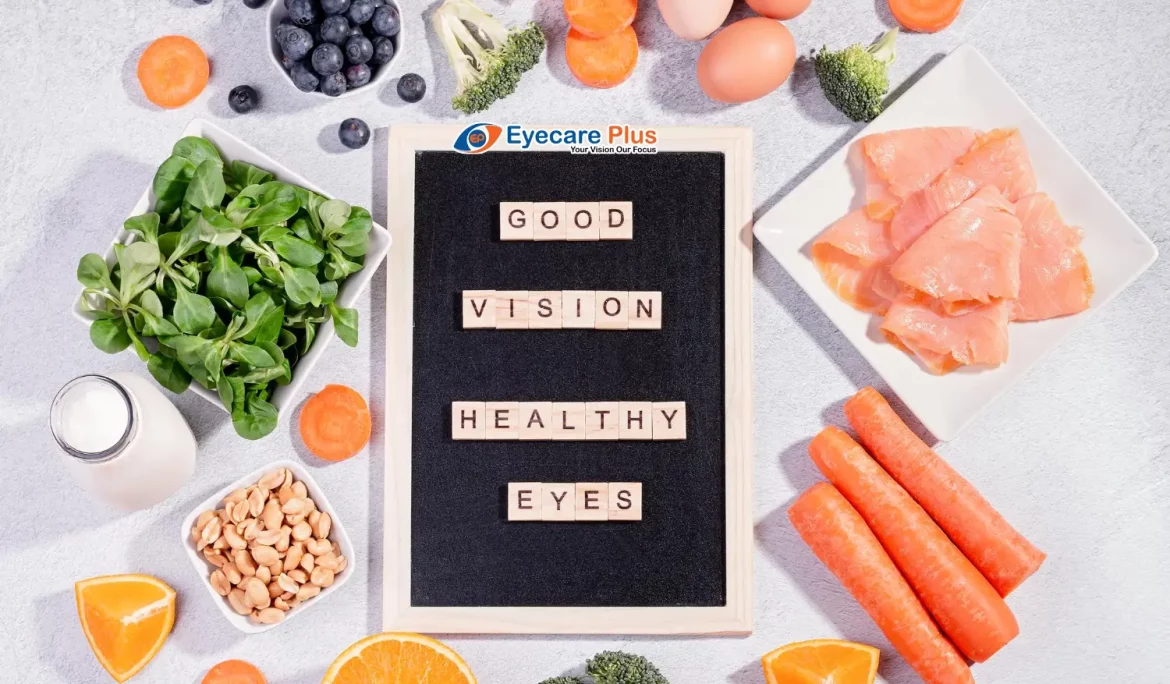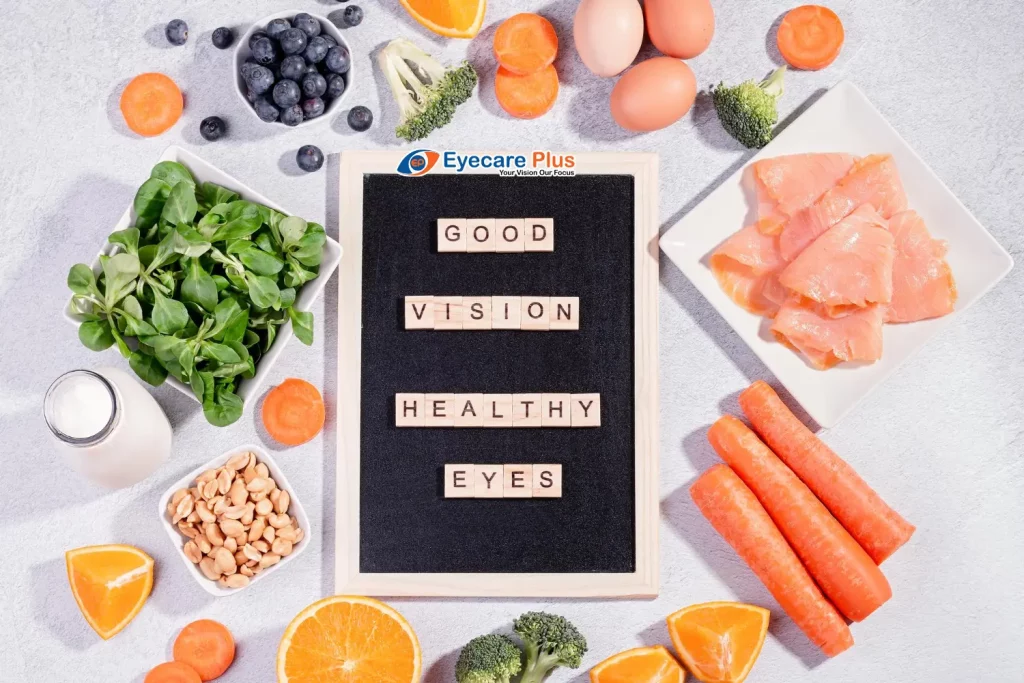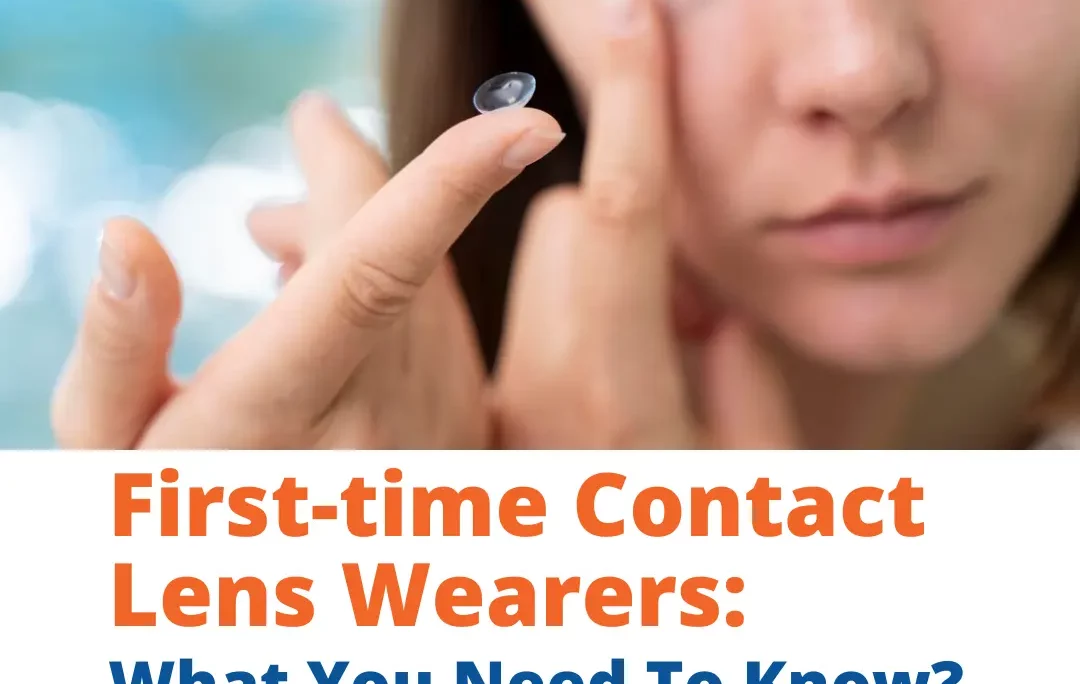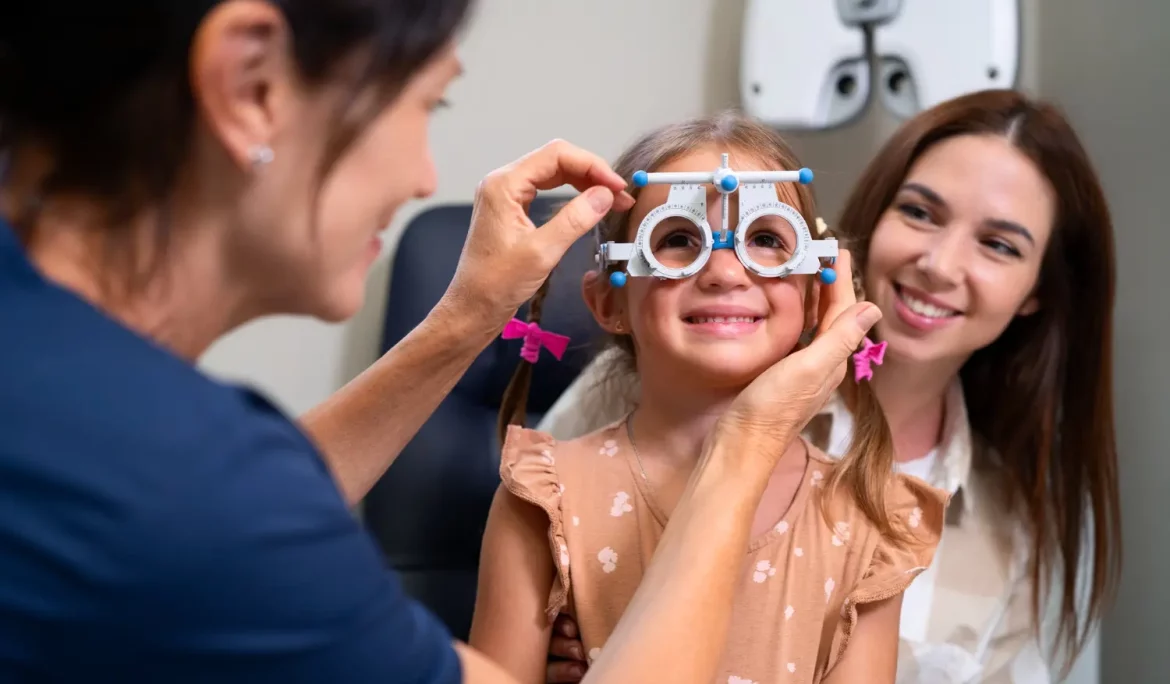One of the most common questions we hear as Optometrists Calgary AB is, “Does what I eat really affect my eyes?”
The short answer? Absolutely.
Your eyes are like any other part of your body, they need the right fuel to function at their best. The foods you choose every day can either support your vision or slowly work against it. And while we can’t stop aging or change our genetics, we can control what’s on our plates, and that can make a real difference.
Some nutrients help protect your eyes from dryness, fatigue, and long-term conditions like macular degeneration. Others? Not so helpful. In fact, certain foods may speed up vision decline if they become a regular habit.
Essential Nutrients for Eye Health (and Why They Matter)
When it comes to protecting your vision, diet is foundational. The eyes, like any other organ, rely on a steady supply of nutrients to function properly, repair damage, and defend against long-term wear.
And as optometrists, we often explain that certain vitamins and antioxidants are not only helpful, but critical to reducing the risk of common age-related eye conditions such as macular degeneration, cataracts, and dry eye disease.
Here are the nutrients most important to eye health, and the role each one plays:
Vitamin A
This vitamin helps maintain the integrity of the cornea, the clear outer layer of the eye, and supports healthy night vision by aiding the function of photoreceptor cells in the retina. Chronic deficiency can lead to dryness, poor night vision, or in severe cases, corneal ulcers.
Vitamin C
A powerful antioxidant, vitamin C helps protect ocular tissues from oxidative stress, especially the lens and retina. It also supports healthy blood vessels in the eye, which is important for reducing the risk of diabetic retinopathy and cataracts.
Vitamin E
This fat-soluble antioxidant protects the cells of the eye, particularly those in the retina, from oxidative damage. Some studies suggest vitamin E may help slow the progression of age-related macular degeneration (AMD) when combined with other nutrients.
Omega-3 Fatty Acids
These essential fats are known for their anti-inflammatory properties and are a key component of the tear film. They support proper tear production and reduce symptoms of dry eye, making them especially beneficial for people who spend long hours in front of screens or live in dry climates.
Lutein and Zeaxanthin
These carotenoids are found in high concentrations in the macula, the part of the retina responsible for central vision. They act as natural filters for high-energy blue light and help neutralize free radicals, offering protection against macular degeneration and digital eye strain.
Zinc
Zinc is essential for the conversion of vitamin A into a usable form within the retina. It supports night vision and overall retinal function, and deficiencies have been linked to poor dark adaptation and increased risk of AMD.
Note: While supplements may help in certain cases, getting these nutrients through whole foods remains the most effective and sustainable way to support long-term eye health.
Top 10 Foods to Eat for Healthy Eyes
Now that you know what your eyes need to stay healthy, our optometrist in Calgary AB would like to talk about the foods that deliver those nutrients best.
Here are 10 easy, delicious picks that can make a real difference in how your eyes feel and function:
1. Spinach
If you’re not already tossing spinach into your meals, now’s the time. It’s packed with lutein and zeaxanthin, two antioxidants that help filter harmful blue light and protect the part of your eye responsible for sharp vision. A handful in your salad or smoothie? Your eyes will thank you.
2. Carrots
Yes, the old advice still holds. Carrots are full of beta-carotene, which your body turns into vitamin A. This vitamin supports your cornea and helps you see better at night. Keep a bag of baby carrots on hand: simple, crunchy, and great for your eyes.
3. Salmon
Salmon is rich in omega-3 fatty acids, which help keep your eyes lubricated and reduce inflammation. If your eyes often feel dry or tired, adding salmon to your dinner rotation just twice a week can make a noticeable difference.
4. Eggs
Eggs are like a little multivitamin for your eyes. They’re rich in lutein, zeaxanthin, vitamin A, and zinc: all crucial for eye health. Scrambled, boiled, or in an omelet, they’re one of the easiest ways to support your vision from the inside out.
5. Sweet Potatoes
Aside from being comforting and tasty, sweet potatoes are loaded with beta-carotene and vitamin E. These antioxidants help protect your eyes from the kind of damage that slowly builds up with age. Roast them, mash them, or make fries, just get them on your plate.
6. Red Bell Peppers
These colorful veggies are one of the best sources of vitamin C for your eyes. They help strengthen the blood vessels in your retina and lower your risk of developing cataracts. Slice them into a stir fry or eat them raw with hummus, they’re that versatile.
7. Blueberries
Tiny but mighty, blueberries are loaded with antioxidants that help fight inflammation and oxidative stress. They’re also great for reducing eye fatigue, especially if you’re staring at screens all day. Toss them in your cereal, yogurt, or smoothie and let them do the work.
8. Walnuts
If you need a quick snack that’s actually good for your eyes, grab a handful of walnuts. They’re a plant-based source of omega-3s and offer vitamin E to help protect your retina. Bonus: they’re good for your brain, too.
9. Broccoli
Broccoli is a triple win. You get vitamin C, lutein, and zeaxanthin all packed into one vegetable. It helps slow down the aging process in your eyes and keeps your lens clear. Steam it, sauté it, or throw it into pasta, just don’t skip it.
10. Citrus Fruits (Oranges, Grapefruit)
Citrus fruits are loaded with vitamin C, which helps keep the tissues in your eyes strong and healthy. They’re easy to snack on and make a bright, refreshing addition to any meal. If your goal is long-term vision protection, a few slices a day go a long way.
Adding even a few of these foods to your weekly meals can do more for your eyes than most people realize. The best part? They’re not hard to find, not hard to cook, and your future self (and your optometrist) will be glad you did.
Which Foods to Avoid for Better Eye Health
Since we now know what to eat and which nutrients support healthy vision, it’s just as important to understand what to limit or avoid altogether. Certain foods and ingredients, when consumed too often, can work against all the good you’re trying to do for your eyes.
Here are a few things to keep an eye on (no pun intended):
Highly processed foods – Often lacking in key nutrients, these foods tend to be high in unhealthy fats and additives that may contribute to inflammation and oxidative stress.
Sugary snacks and drinks – Excessive sugar can raise your risk of diabetic eye conditions and interfere with healthy blood flow to the eyes.
Fried foods – These contain trans fats, which are linked to cell damage and may reduce your eyes’ ability to absorb protective nutrients.
Too much salt – A high-sodium diet can increase blood pressure and, in some cases, lead to fluid retention that affects eye tissues.
Avoiding these foods doesn’t have to be extreme, but should be in balance. Small changes can help support the benefits of a nutrient-rich diet and protect your vision in the long run.
When to See an Optometrist (and Why It Matters)
Eating well is a great step toward protecting your vision, but it’s not the only one. If you’ve noticed any changes in your eyes, no matter how small, it’s worth paying attention. Maybe you’re squinting more, feeling dryness throughout the day, or just not seeing as clearly as you used to. These little shifts are often your eyes’ way of telling you something’s off.
That’s where an optometrist comes in.
Even if it’s been a while since your last exam or if you’ve never had one, a professional check-up can offer clarity, reassurance, and guidance. They’ll take a full look at your eye health, assess your vision, and let you know if any adjustments or treatments are needed.
If you’re in Calgary, EyeCare Plus is a great place to start. Our team takes a caring, personalized approach to eye care and makes sure you understand what your eyes need, including how your diet, habits, and daily routines might be affecting your vision.
Sometimes, the best way to take care of your eyes is simply by checking in, and letting a trusted expert do the rest.

















